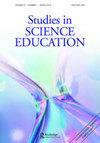A review of research on metacognition in science education: current and future directions
IF 4.7
2区 教育学
Q1 EDUCATION & EDUCATIONAL RESEARCH
引用次数: 293
Abstract
The goal of this study is to map the current state of research in the field of metacognition in science education, to identify key trends, and to discern areas and questions for future research. We conducted a systematic analysis of 178 studies published in peer-reviewed journals in the years 2000–2012 and indexed in the ERIC database. The findings from this analysis indicate that the field of metacognition in science education is in a state of growth and expansion, and that metacognition is increasingly integrated into research addressing the core objectives of science education. In contrast to the findings of previous reviews, conceptual understanding of science was found to be one of the central aims of current metacognition research. The studies employ a wide range of instructional practices for fostering learners’ metacognition. The most prominent practice is the use of metacognitive cues and prompts in the course of instruction. Several research gaps are identified: first, the development of learners’ metacognitive knowledge is receiving less empirical attention than the development of their metacognitive skills; second, there is a lack of studies that employ controlled research designs that can provide causal evidence regarding the effectiveness of metacognitive instruction for science learning; third, there is an insufficient number of studies of metacognition among young learners in preschool and the early years of elementary school; and fourth, there are very few studies of teachers’ knowledge and professional development regarding metacognition. The implications of these research gaps are explored and suggestions for future research are raised.科学教育中的元认知研究综述:现状与未来方向
本研究的目的是描绘科学教育中元认知领域的研究现状,识别关键趋势,并辨别未来研究的领域和问题。我们对2000年至2012年间发表在同行评议期刊上的178项研究进行了系统分析,并在ERIC数据库中进行了索引。这一分析结果表明,科学教育中的元认知领域正处于成长和扩张的状态,元认知越来越多地融入到解决科学教育核心目标的研究中。与之前的研究结果相反,对科学的概念性理解是当前元认知研究的中心目标之一。这些研究采用了广泛的教学实践来培养学习者的元认知。最突出的实践是在教学过程中使用元认知线索和提示。发现了几个研究空白:第一,学习者元认知知识的发展受到的实证关注少于其元认知技能的发展;其次,缺乏采用对照研究设计的研究,这些研究可以为元认知教学对科学学习的有效性提供因果证据;三是对学龄前和小学早期幼儿元认知的研究不足;第四,关于教师元认知知识和专业发展的研究很少。探讨了这些研究缺口的意义,并对未来的研究提出了建议。
本文章由计算机程序翻译,如有差异,请以英文原文为准。
求助全文
约1分钟内获得全文
求助全文
来源期刊

Studies in Science Education
EDUCATION, SCIENTIFIC DISCIPLINES-
CiteScore
15.30
自引率
2.00%
发文量
7
审稿时长
>12 weeks
期刊介绍:
The central aim of Studies in Science Education is to publish review articles of the highest quality which provide analytical syntheses of research into key topics and issues in science education. In addressing this aim, the Editor and Editorial Advisory Board, are guided by a commitment to:
maintaining and developing the highest standards of scholarship associated with the journal;
publishing articles from as wide a range of authors as possible, in relation both to professional background and country of origin;
publishing articles which serve both to consolidate and reflect upon existing fields of study and to promote new areas for research activity.
Studies in Science Education will be of interest to all those involved in science education including: science education researchers, doctoral and masters students; science teachers at elementary, high school and university levels; science education policy makers; science education curriculum developers and text book writers.
Articles featured in Studies in Science Education have been made available either following invitation from the Editor or through potential contributors offering pieces. Given the substantial nature of the review articles, the Editor is willing to give informal feedback on the suitability of proposals though all contributions, whether invited or not, are subject to full peer review. A limited number of books of special interest and concern to those involved in science education are normally reviewed in each volume.
 求助内容:
求助内容: 应助结果提醒方式:
应助结果提醒方式:


